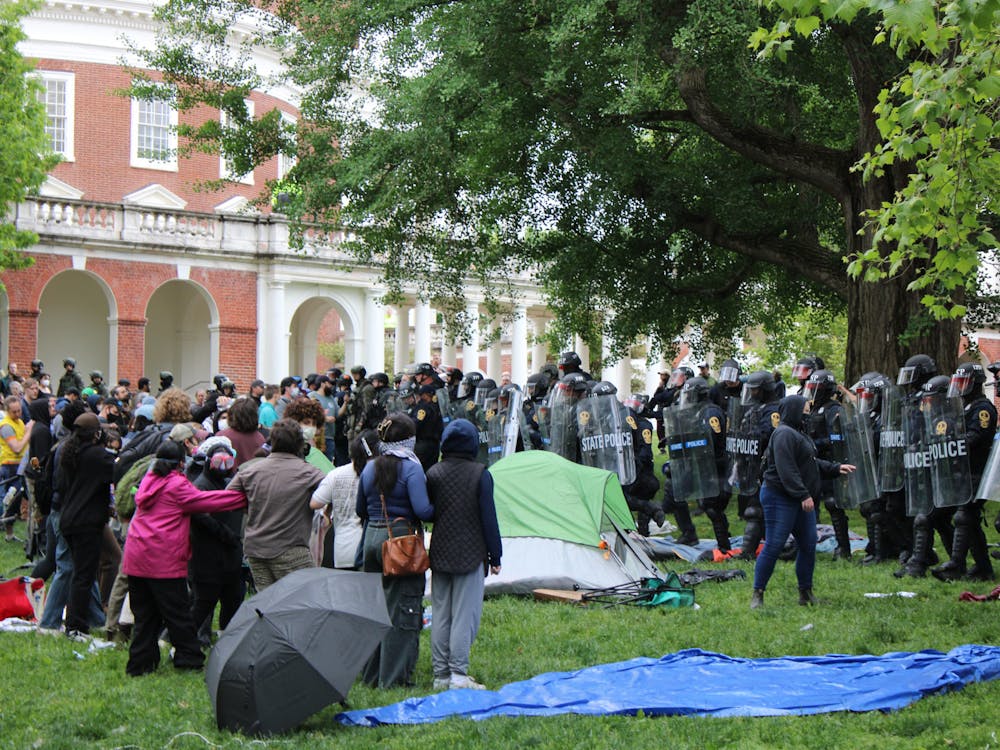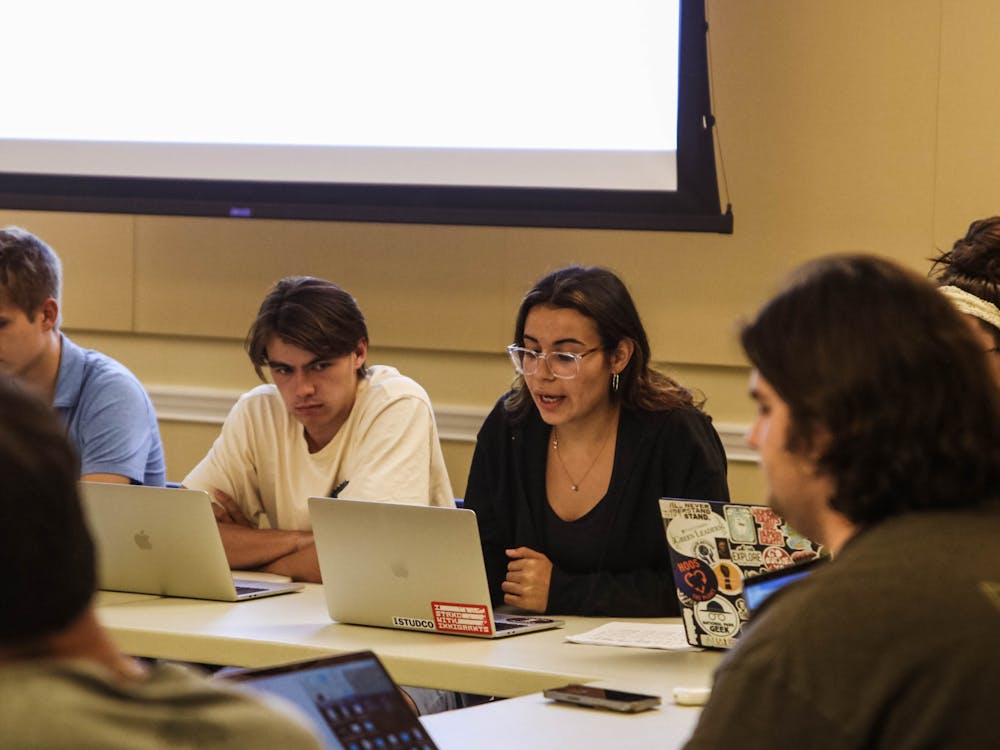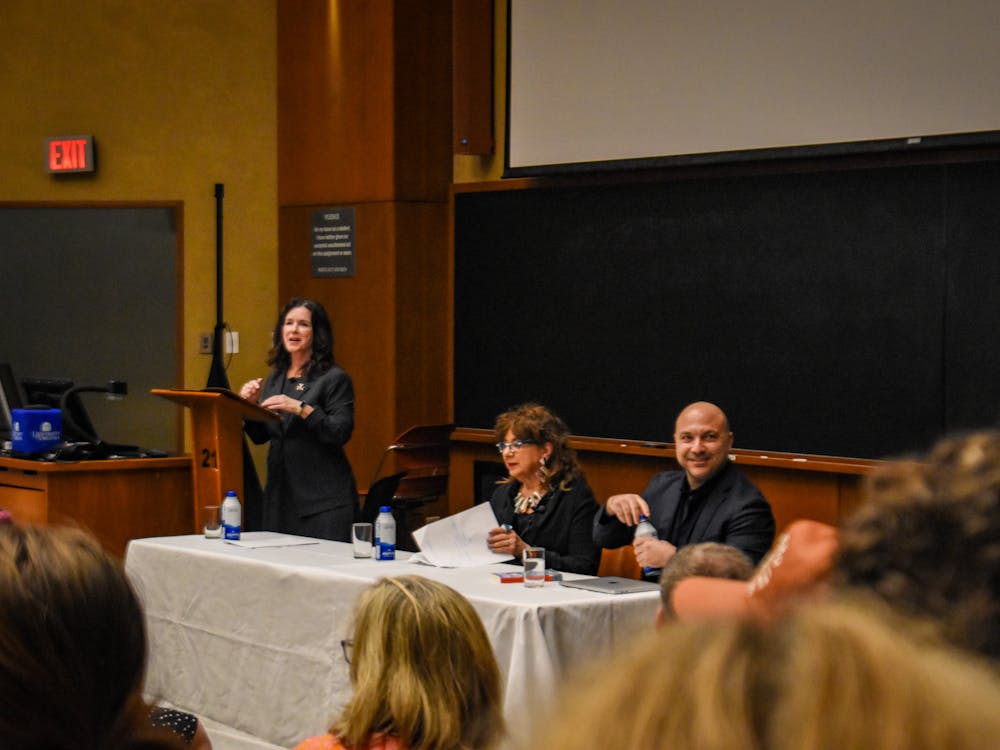Members of the University community gathered Friday for the "Day of Dialogue," a series of talks, performances and discussions focusing on frank conversations about violence and bias.\nThe event was a joint collaboration between the president's office, the office of the vice president for student affairs and a student group called Let's Get Grounded, which encourages taking action rather than becoming a bystander.\nUniversity President Teresa A. Sullivan called the Day of Dialogue a "first step in building the caring community we all want to have."\nThe day was intended to continue the conversations that began in the aftermath of Yeardley Love's murder last spring by fellow student and varsity lacrosse player George Huguely, she said. That tragedy closed a year during which seven University students died, as well as Virginia Tech student Morgan Dana Harrington, who disappeared while visiting Charlottesville.\nSullivan said she hopes frank conversation will help students continue to process these tragedies and come together as a community.\n"Through grieving, we can deepen our connection to other human beings," Sullivan said.\nShe also acknowledged that violence and abuse are national and international problems and that many individuals suffer in silence and anonymity.\n"We gather today for those people, too," she said.\nShe asked participants to keep in mind that "human resilience is greatly underestimated" and urged them to "encourage one another and find ways to deepen our connection to one another."\nThe student-led Get Grounded Coalition was a key partner in developing the day's events.\n"The University has a lot of questions that need to be answered," said Will Bane, a member of the coalition. The Day of Dialogue, he said, "gives the university an opportunity to have an honest conversation and to evaluate whether or not we have a caring community," and to confront difficult issues such as violence, alcohol abuse and sexual and homophobic bias.\nTop faculty members facilitated smaller group discussions in various rooms across Grounds. The first discussion, from 10:15 to 11:45, focused on the question, "Am I my sister's / brother's keeper?" The second discussion, from 2 to 3:30, asked, "Are we a caring community?" Groups were made up of members from diverse strata of the University community and included administrators, faculty, staff, undergraduate and graduate students, parents and members of the Charlottesville community.\nA break from noon to 2 p.m. allowed participants to enjoy lunch in the Amphitheater while various dance, poetry and music groups performed. Participants could also go to a resource fair on the South Lawn, which featured more than 30 groups and organizations within the University that focused on combating violence, bias, abuse and other issues.\nAbout 1,500 participants registered for the discussions, but there were fewer students in the discussions than anticipated, with male students being particularly underrepresented.\nNevertheless, fourth-year College student Claudia Quintero said she thought the discussions could be the beginning of "working to rebuild our community in a positive way." Meanwhile, third-year College student Emily Peters said the groups had a great mix of some students, community and faculty members, enabling many people to have conversations with people with whom they otherwise might not have spoken.\nMany discussions focused on the importance of recognizing issues within the community and standing up to them on an individual level. Dean of Students Allen Groves said he hoped community members would bear in mind the obligation they have to look out for each other, thus "continu[ing] the ongoing discussion that began last year."\nSimilarly, Sullivan noted that the discussions may lead to other conversations and events throughout the year.\nPemberton Heath - a third-year college student and chair of Sustained Dialogue - said she believes Sullivan showed, by heading this event, that she is not afraid of confronting difficult issues surrounding the University.\nHeath said it would have been easy to jump straight into direct action or to move on simply into a new year. She praised the president for instead taking the time to "hear different voices who are so passionate about these issues." Heath emphasized that dialogue is not just talking about issues; it is talking "in a very productive way, with a willingness to change your perspectives or to gain understanding."\nIn his closing remarks, English Prof. Michael Suarez said the University community is one dedicated to the concept of truth. Suarez suggested a broader description.\n"I think the truth is something we are meant to do" rather than just to know, Suarez said.\nThroughout the day, participants voiced concerns that discussions, even if they were productive, might not spread throughout the larger community. As a result, the day's organizers are making efforts to ensure that the conversations begin to move beyond the day-long event.\nStudents within the Let's Get Grounded Coalition have developed training programs to combat the bystander effect, in which a bystander fails to recognize or react to a problem. So far, more than 500 students and faculty members have been trained in the program. Additionally, the group is working on sponsoring events related to its mission and on recruiting students to sign pledge cards saying they will "recognize, react and respect" in bystander situations.\nSullivan emphasized that the administration will meet with discussion facilitators to review issues raised in the discussion sessions and will develop follow-up plans based on those conversations.\n"The honesty of today's dialogue is a sign that we are moving in the right direction," Sullivan said in her closing remarks.




